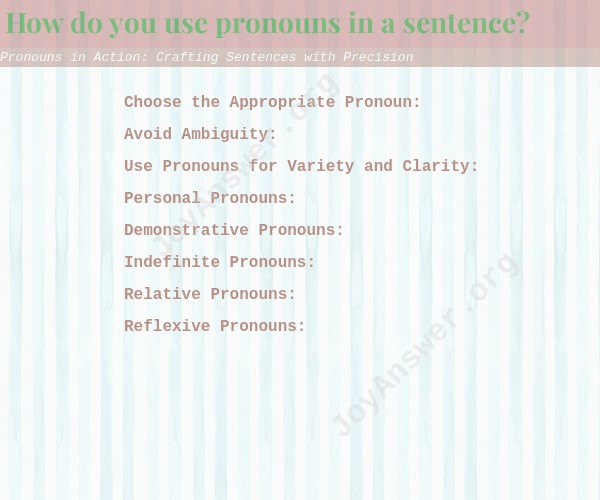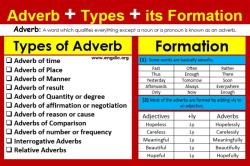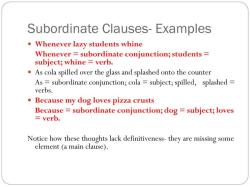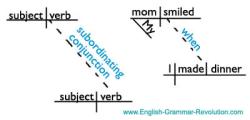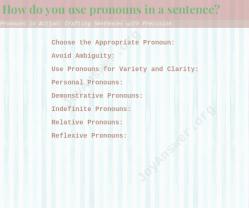How do you use pronouns in a sentence?
Using pronouns in a sentence is essential for maintaining clarity and avoiding repetitive language. Pronouns replace nouns, allowing you to refer to people, places, things, or ideas without constantly repeating their names. Here's how to use pronouns effectively in a sentence:
Choose the Appropriate Pronoun:Select the pronoun that matches the gender, number (singular or plural), and case (subject, object, possessive) of the noun it replaces. Common pronoun types include personal, demonstrative, indefinite, relative, and reflexive pronouns.
Avoid Ambiguity:Ensure that the pronoun's reference is clear and unambiguous. The reader should easily understand which noun the pronoun refers to.
Use Pronouns for Variety and Clarity:Pronouns can make your writing more concise and less repetitive. However, overusing pronouns can lead to confusion. Strike a balance between using pronouns and repeating nouns when needed for clarity.
Here are some examples of how to use different types of pronouns in sentences:
Personal Pronouns:
- Subject: He plays the guitar.
- Object: She loves him.
- Possessive: That is her book.
Demonstrative Pronouns:
- This is my laptop.
- Those are your shoes.
Indefinite Pronouns:
- Everyone attended the meeting.
- Nobody knows the answer.
Relative Pronouns:
- The car that I bought is red.
- The person who won is my friend.
Reflexive Pronouns:
- She hurt herself.
- They did it by themselves.
Proper use of pronouns enhances the readability and flow of your writing. However, always ensure that your pronoun usage is clear and doesn't create confusion regarding what the pronoun refers to in the sentence.
